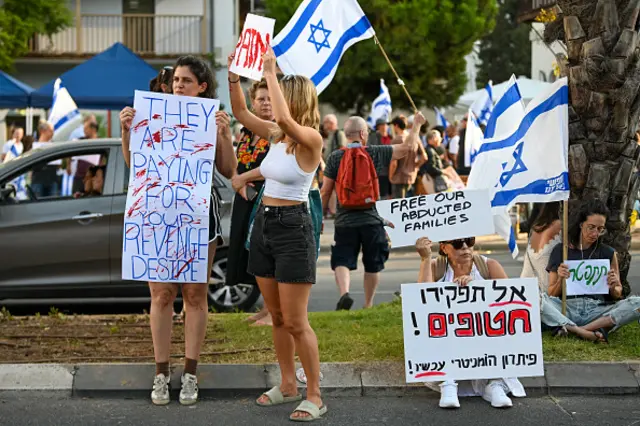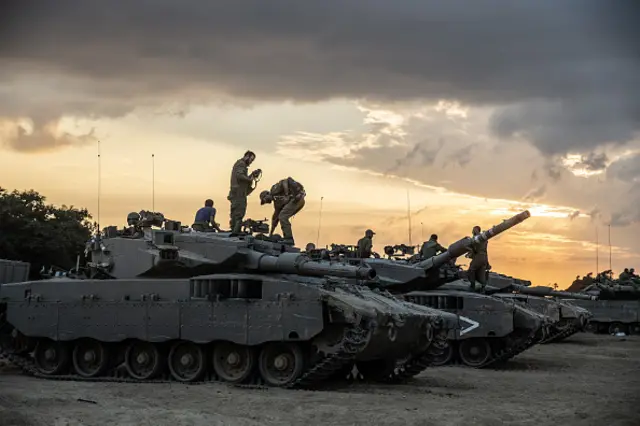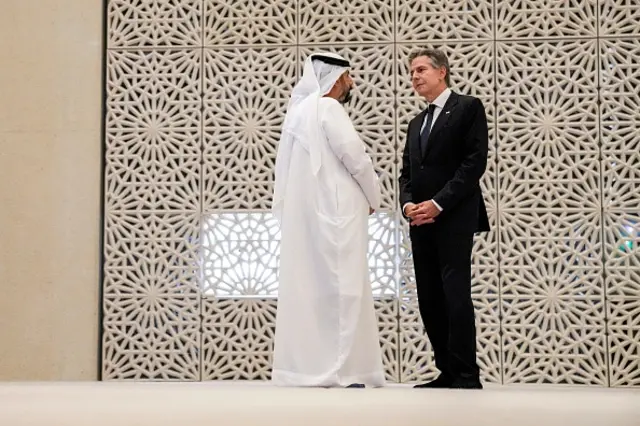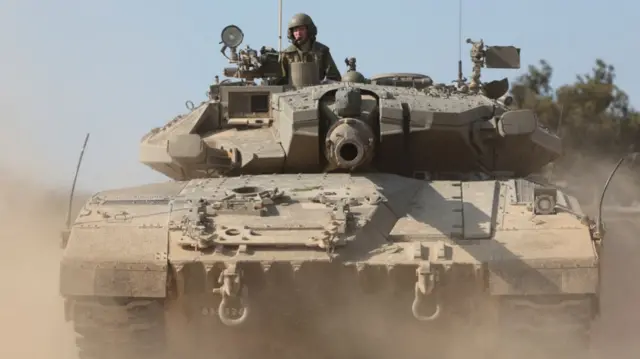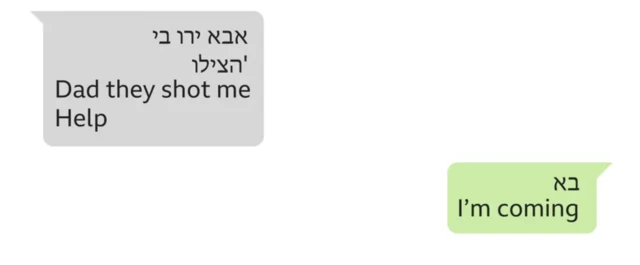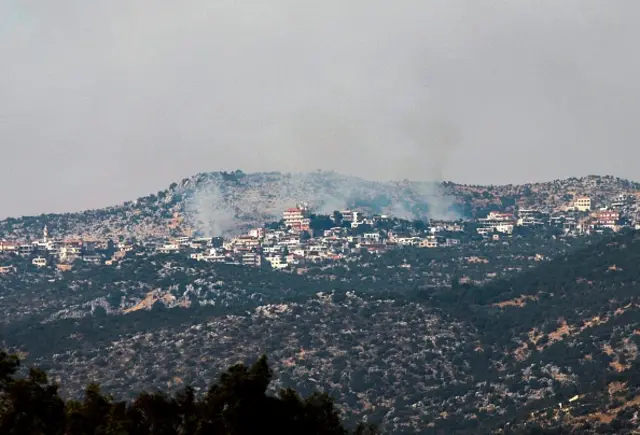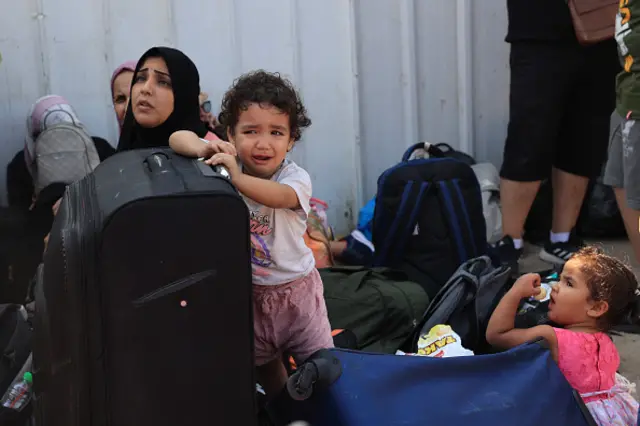Iran warns the situation could 'spiral out of control'published at 23:26 BST 14 October 2023
Iran's mission to the United Nation says that "if Israel's war crimes and genocide are not halted immediately, the situation could spiral out of control and ricochet far-reaching consequences".
In a post on X, the mission wrote that if that happens, "the responsibility lies with the UN, the Security Council and the states steering the Council toward a dead end".
